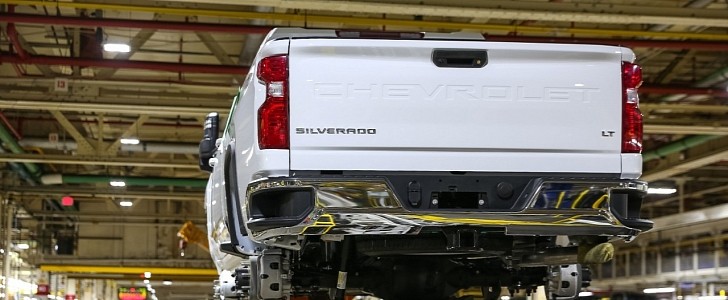The super-constrained chip inventory is still causing massive headaches to carmakers across the world, and despite all the optimistic forecasts, more and more companies are losing hopes that things could finally improve this year.
While a slight recovery is indeed expected in the second half of 2022, tech giants like Intel don’t seem to believe that the end of the semiconductor crisis is on the radar just yet.
What’s more, it would take two more years to resolve this global problem, with Intel claiming that some industry sectors would need until at least 2024 to return to pre-2020 production levels.
Visteon, one of the largest automotive electronics suppliers, also doesn’t seem to believe that the chip shortage could come to an end too soon. In other words, if you expected the pre-pandemic inventory to be possible by the end of the year, well, this isn’t going to happen.
Company president and CEO Sachin Lawande has recently come up with a prediction that, at some level, makes sense.
The chip shortage would be over in 2023, at which point we can forget about the constrained inventory and focus on other car manufacturing challenges.
Lawande’s forecast is based on a very simple idea. The more the automotive world evolves, the less it relies on chips with an old design. It’s not a secret that cars are using older chips, and this is the reason the industry has been hit so heavily by the shortage.
Most chipmakers have already moved to new designs, especially as their largest customers come from the tech sector. And most tech companies are obviously using new-generation chips that come with increased speeds and more efficiency.
The automotive industry is now migrating to newer designs as well, Lawande explains, and this gives the entire market the opportunity of accessing a larger supply of semiconductors.
Time will tell if Visteon is right on this one, but for now, you’d better not hold your breath for the end of the shortage.
What’s more, it would take two more years to resolve this global problem, with Intel claiming that some industry sectors would need until at least 2024 to return to pre-2020 production levels.
Visteon, one of the largest automotive electronics suppliers, also doesn’t seem to believe that the chip shortage could come to an end too soon. In other words, if you expected the pre-pandemic inventory to be possible by the end of the year, well, this isn’t going to happen.
Company president and CEO Sachin Lawande has recently come up with a prediction that, at some level, makes sense.
The chip shortage would be over in 2023, at which point we can forget about the constrained inventory and focus on other car manufacturing challenges.
Lawande’s forecast is based on a very simple idea. The more the automotive world evolves, the less it relies on chips with an old design. It’s not a secret that cars are using older chips, and this is the reason the industry has been hit so heavily by the shortage.
Most chipmakers have already moved to new designs, especially as their largest customers come from the tech sector. And most tech companies are obviously using new-generation chips that come with increased speeds and more efficiency.
The automotive industry is now migrating to newer designs as well, Lawande explains, and this gives the entire market the opportunity of accessing a larger supply of semiconductors.
Time will tell if Visteon is right on this one, but for now, you’d better not hold your breath for the end of the shortage.

